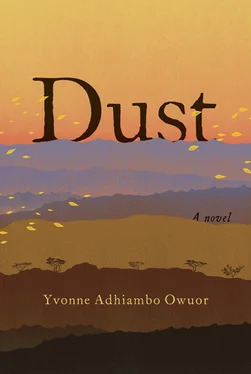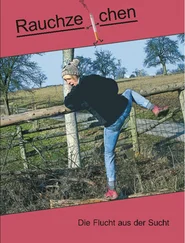Silence.
A white wall lined up with framed certificates of overachievement. Pictures of Opirr in assorted robes carrying scrolls and other artifacts of accolade. Seven pictures of Opirr with a plump, happy giantess, presumably his wife, and their nine children lined up for a photographer, adorned in different-colored academic gowns.
But it is a silver-edged, elegantly inscribed framed text, beneath which a small square of the Kenya flag is glued, on which Ajany focuses. She reads:
“I heard my country calling, away across the sea ,
Across the waste of waters she calls and calls to me …
I haste to thee my mother, a son among thy sons.”
Opirr follows her gaze. “A reminder, for when I forget.” He says.
“Sir?” Ajany asks.
“Why I’m here. Y’know, was in the first of the Mboya-Kennedy airlifts. Excelled, of course. The Americans had never met anyone like me. Top of my school, of course. Much courted. Abandoned the banquet of Western tables to come home. Yes. Y’know the anthem from which I borrow these lines? Cherished by our English friends?” He begins to croak, “ I vow to thee my country, all earthly things above .…” He stops and clears his throat with a trumpeting sound. “Ah! Odidi.” He frowns.
Opirr and Ajany sip tea. Opirr booms, “Musali!”
Odidi’s competitor turned friend.
Ajany remembers the nervy, loud youth whose jumpy presence discomfited her. Musali had been the heckling cheer-song conductor to Odidi’s rugby turnout.
Odidi had once told her about his rivalry with Musali. Musali had mocked Odidi’s private-school accent. Odidi had let him get away with it for a week. “Then I sorted him out,” Odidi boasted.
Opirr recounts the tale.
“The very next week, Odidi became Musali. Dress, accent, and walk. Uproar in class and campus.” He chuckles. “After three days, the two young men called a truce. Learned to share projects, plans. Yes. Mad about water, both of them, what?” Opirr pauses. “First-class honors. In the top ten best marks in the university’s history.” A broad smile. “Two of the best. Both in my class.”
Opirr fishes out details from a tattered fat black pocket planner. “Moses Odidi. Infatuated with the geometry of life. Loved beautiful things. An aesthete — do you love beautiful things? Do you know the boy redesigned a ditch carrying effluent into the Nairobi River so that it generated potable water? Very grateful slum people.” A hand gesture, light on the turquoise ring. “They renamed the ditch for him, what? K’Ebewesit in Korogocho or one of those other ridiculous Nairobi ‘K’ settlements — Korogocho or Katina — no, Kawangware. KKK … Kibera? That ditch rebuilt under the nose of a city councillor who vowed to behead him. Who are these sociopaths? Such calicoes . Behead? What ugliness.” Pursed lips. “M’fraid when they killed Tom we lost all sense of our … elegance . Whatever given in exchange for his soul — poor man — opened gates for a viscid, stygian presence to roam our land unfettered, trading in baubles, lies, and blood for lives.” He frowns. “Do you understand?” He drifts, muttering an incoherent phrase before stirring himself alert.
Heart jolt inside Ajany.
“Anyway. Heard our Odidi went off with Musali and some members of his rugby team to confront that terribly foolish man. Called him out, gave him a sharpened panga, told him to try.” Opirr chortles. “Another truce called. Odidi. A character.”
“Musali and Odidi. Good team. Final-year project became Tich Lich Engineers, a company.” A frown. Opirr’s jowls collapse in a downward movement, eyes whiten with subtle unhappiness. “Oh, what do you do when you are made to wade through political sludge? Terrifyingly ugly, Odidi’s little sister. Soul-corroding.” He looks into his book, then turns to search through one of the containers on the table overflowing with business cards. “No moral gumption among men today, m’afraid, few noble testicles around — forgive the crudity — we’re spawning tawdry thieves, hitmen, and gigolos who love nothing!” Opirr wheezes, plucks out a card, and hands it over to Ajany. “Little sister, when you find Moses, tell him his old teacher would be so pleased to meet him, what?”
Ajany studies the black card, the white text that reads, “Tich Lich Engineers. Bespoke Engineering Consultants.” No names, just an address. She slips it into her handbag.
Opirr leans forward to grab Ajany’s hand.
She stares at the shape, color, and size of his ring. A finger sneaks out to feel its texture. “Tell him, you hear me?” An urgent edge in Engineer Opirr’s tone.
Tears in Ajany’s eyes. She clings to and then drops his hands to pick up her bag and glances at the room one more time. “He was happy here?”
“Delirious. Never saw a child thrive as he did, once given the tools, the time and space. A treasure.”
Ajany gives Engineer Opirr her first real smile since her return to Kenya.
She walks faster than the unmoving traffic all the way to City Park, where someone’s loud, bombastic praise music— pakruok —fills the air. Lively food, touchable juiciness. Two hopeful vervet monkeys peek through doors. Cashew nuts, aubergines, and chili-tomato sauce. Braised meat, braised chicken, and fish. Dried fish. Ohangla music next door to Mzee Ngala’s sedate bango beats. Ajany eats with her fingers, tasting flavors for the first time as portions of Odidi accumulate around her. A treasure . She pauses and smiles.

Isaiah walks the landscape unseen and unknown, as if he might not even exist except to himself. It is toward the end of the fifth day when rectangles of shimmering corrugated iron roofs strike his squinting eyes. A white Land Rover drives past him, and the silence that has been his companion evaporates.
Now.
A bevy of beautiful lorries, contemplative humped cows, a small market made of color and dung. Sheep and goats bleat. A large van with a red cross parks parallel to a decrepit curb laden with gunnysacks next to a green Kenyan army truck whose driver is attempting to reverse in quicksand. Under twin Acacias, three supercilious camels rest. They are flanked by six white boxes bearing a blue-yellow sign with the legend: Reading Is Knowledge . The Kenya National Library Services Camel caravan pitching camp for the night. A youthful camel handler with dark gold skin and a splendid dome of a head is sprawled on a grass mat spluttering away at the contents of Enid Blyton’s Five Run Away Together , the only one in the series Isaiah had not read. With dusk plodding in and scarring the sky with yellow-orange trails, the crescendo of a hundred different home-going birds, blue-note winds, variegated shadows, invisible balsam-scented things, and the multi-toned buzz of assorted insects, within a flat, hard land with neither beginning nor end, in this surreal grandeur, Isaiah’s shabby, bearded, thirsty, shimmering appearance from a place just beyond sight, hands propped on a herding stick balanced on his shoulders, is a small part of “normal.”
The drone of a plane preparing to land. A beatific grin transforms Isaiah’s face. He watches the Piper circle the patch of earth serving as the airfield. His way into Nairobi. He will buy the plane if he has to.
Isaiah returns to Babu Chaudhari.
A toothless grin: “Fou’re back!”
“I am.”
“Fou’re wery brown.”
“Thank you.”
“Not good. Here …” Babu shuffles to the back of the shop and returns with a brown plastic bottle. Suntan lotion. Presents it to Isaiah, who does not recognize the manufacturer.
Читать дальше












